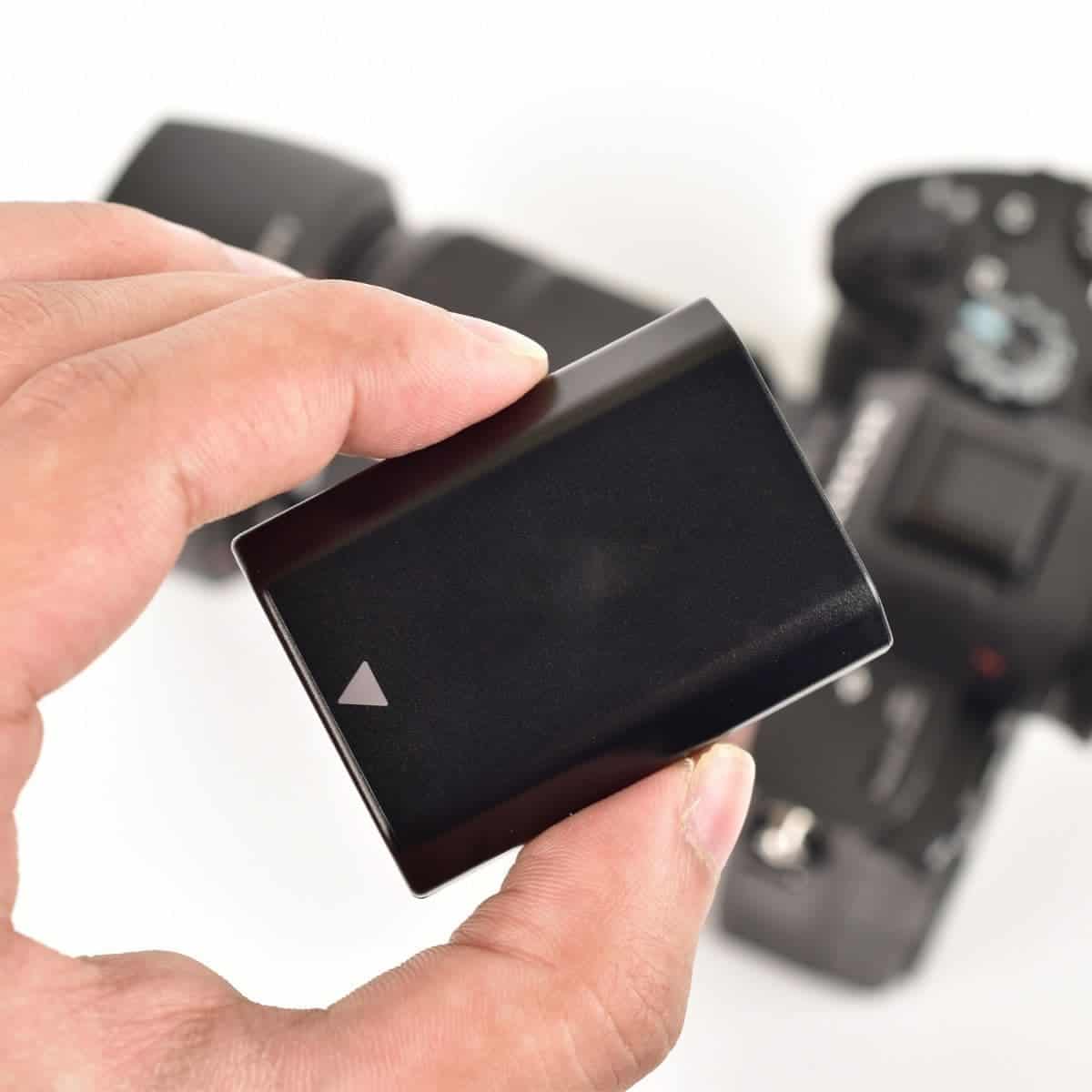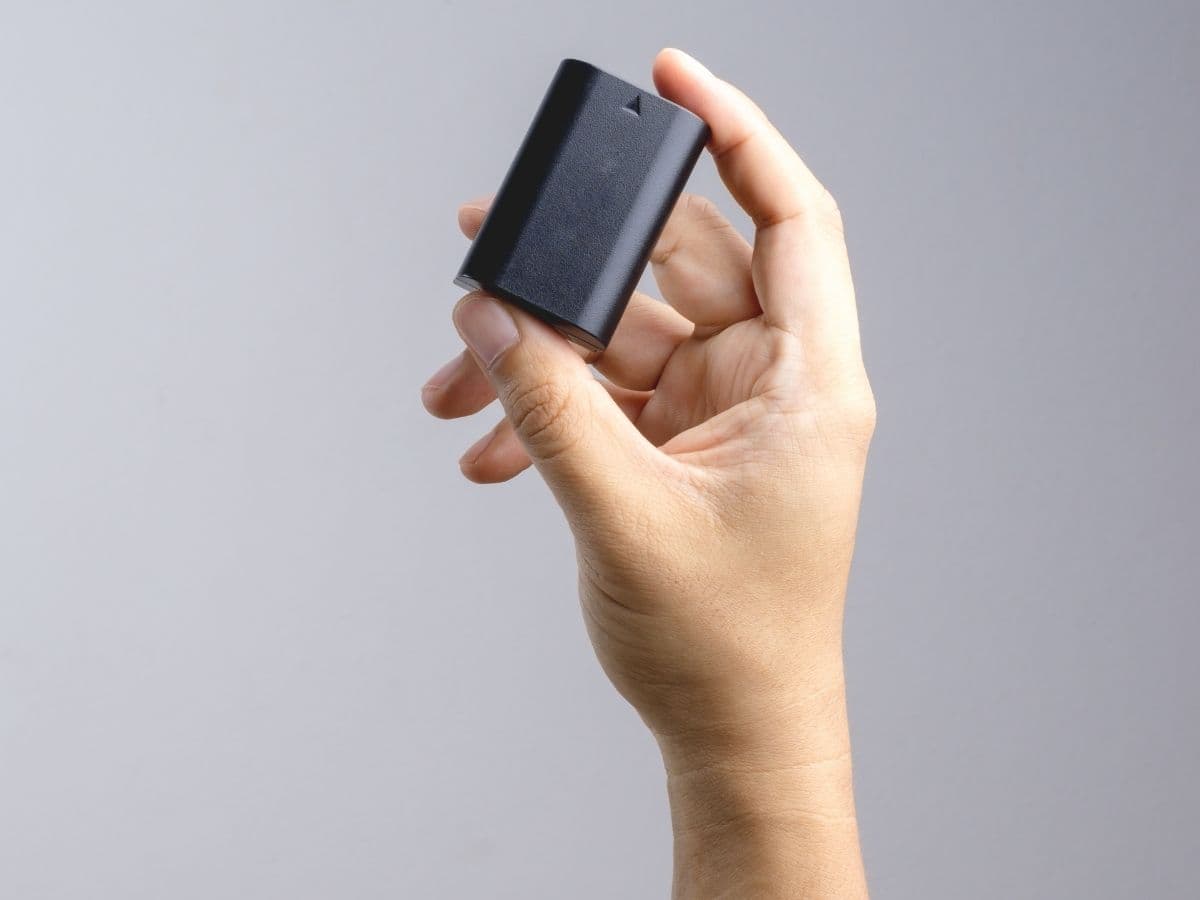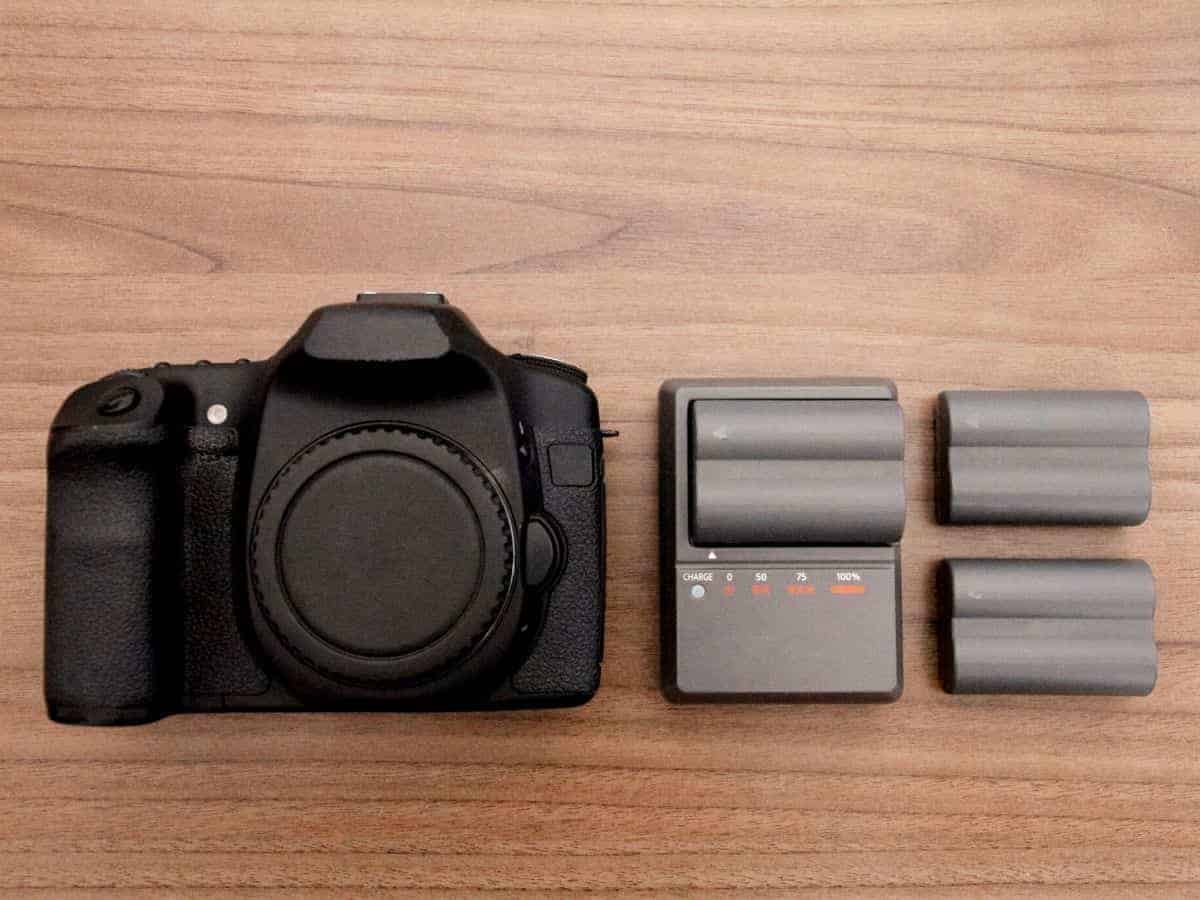While cameras come with a battery, it’s beneficial to have a backup for long shoots or in case it gets damaged. Learn how to choose one.

The last thing you’d want is a dead camera battery while you’re out shooting. When you get a camera, most come with one battery.
The average camera battery lasts for about 400 shots, which equates to between four to eight hours.
Related article: What’s a speedlight?
While that’s sufficient for most situations, having an extra battery ensures you don’t have any issues during a photoshoot.
Whether you need a replacement or an extra battery, buying a high-quality one is crucial.
Related article: What are Lightroom presets?
The following covers everything you need to know about camera batteries, including the different types, brands, and how to choose one.
Types of camera batteries

Most modern cameras come with a battery pack and charger. However, there are different types.
So, understanding the type that your camera uses will ensure you get the correct battery.
Related article: How many photos can a 16 to 512 GB memory card hold?
The following are the different types of camera batteries.
Rechargeable lithium-ion (Li-ion) batteries
Rechargeable lithium-ion batteries are currently the most popular battery type for all electronics.
Lithium-ion batteries are ideal for cameras because they’re light, compact, powerful, have a long lifespan, and remain efficient in low temperatures.
The high energy density allows it to store a lot of power while being small.
Additionally, lithium-ion batteries recharge quickly, which means you’ll be ready to shoot again within a few hours.
Rechargeable nickel-metal hydride (NiMH) batteries
Nickel-metal hydride (NiMH) is another rechargeable battery type. It can be recharged hundreds of times and is cheaper than a lithium-ion battery.
Also, NiMH batteries are better for the environment and perform better in hotter temperatures.
There are several downsides to rechargeable NiMH batteries.
Compared to lithium-ion, NiMH batteries are larger, heavier, and energy levels drain more quickly.
Alkaline (AA or AAA) batteries
Few cameras use alkaline batteries, as they were common in film cameras.
If you have a camera that requires AA or AAA batteries, skip the disposables and use the rechargeable versions instead.
The rechargeable batteries are more cost-effective and efficient. You can keep a few disposables as a backup.
Alkaline batteries aren’t the best for cameras because they provide less power compared to lithium-ion and NiMH.
Related article: 10 best camera hand straps
Are third-party camera batteries safe?

Once you know the type of battery your camera uses, you’re ready to get another one.
As your search for a battery, you’ll come across choices from the camera manufacturer and third-party companies.
While third-party batteries are cheaper, many stories of exploding batteries may steer you away.
Related article: Cameras with in-body image stabilization (IBIS)
You’ve spent hundreds or thousands on a camera, so why would you want to risk it?
Before you close off the third-party battery choice, there’s are good options.
Sure, low-quality batteries from a third-party brand can ruin your camera, but there are better brands.
Third-party brands like Watson and Wasabi Power offer excellent alternatives.
The only problem you may encounter is shorter battery life. However, the cost savings outweigh the slightly reduced power.
The bottom line is that reputable third-party batteries are an affordable and safe alternative.
If you have the budget, get batteries from your camera’s manufacturer.
Related article: What’s a polarizing filter?
Camera battery buying guide
You have a camera, battery, and charger. It’s a great place to start, but to ensure you don’t run into a drained battery situation, you need to get extras.
The optimal setup is to have two extra batteries in your camera bag. So, how do you go about choosing a camera battery?
First, identify the type of battery your camera uses so you can buy compatible batteries.
Then, decide on whether you want name-brand or third-party batteries. Lastly, purchase two of them.
You can get more than two batteries, as it’s a good starting point. Consider your usage to make a decision.
For example, cold temperatures drain batteries quicker. So, if you’re shooting in cold temperatures often, you may want to get three batteries.
Additionally, DSLR camera batteries tend to last longer than mirrorless cameras because the electronic viewfinder and other factors use more power.
If you have a mirrorless camera, you may want three batteries, as well.
While you’re shopping for camera batteries, look for an extra charger, as well.
By having an extra power supply, you’ll never miss the perfect shot.
Related article: Which camera has the fastest shutter speed?
Conclusion
Without a battery, your camera is nothing but a piece of plastic and metal. Batteries are an essential part of a camera.
When you get a camera, it comes with one battery and charger. That’s not enough.
Whether you’re going on a trip or have a dead battery, spares are essential.
Ideally, you need two extra camera batteries and one extra charger. Back-up batteries and an extra charger ensure that you’re ready for any situation.
Featured image courtesy of Canva.
